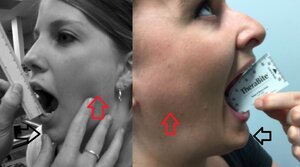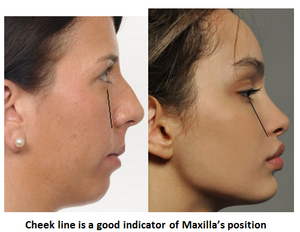Just curious, how are you treating your jaw? Because I have TMJD myself and except wearing a splint, I don't know what to do. I went to 6 doctors and no solution.
It's taken me almost 2 years to figure this out, but I believe in my own personal case, one of my co-factors (among stress and others) has been a retracted mandible. No splint (unless it's a mandibular advancement splint) is going to fix that. When the mandible is retracted (i.e. set back), it can compress the trigeminal nerve, and if the TGN is compressed the Eustachian tube can go out of whack, middle ear inflammation can set in, the tension of the ear drum can change, the middle ear muscles can tense up and the nerve itself can start to become sensitised. In short, all hell can break loose.
In order to understand how that happens, I highly recommend reading
this article. I had come across it early on in my reading but dismissed it, only to stumble across it again 18 months later after exhausting a lot of other options. It's long and it's heavy, but it's written by someone who has a background in robotics engineering and applied the principles of that discipline to how the body can malfunction when one part of the system starts to fail. Essentially, everything is connected. He's now a trained physiotherapist and is currently retraining to become a fully qualified doctor
I think intuitively speaking, a lot of us feel that our jaws are involved, and many ENTs seem to suggest it as well, but as the jaw is not their area they can't advise - they just know there is a connection.
As for the solution to a retracted mandible? Permanent habitual change i.e. forcing your jaw forward by about 2-4mm (very subtle) by engaging the lateral pterygoids. It is really important one doesn't engage the suprahyoid muscles under the chin to compensate, as this is can actually make things worse as these muscles can set the jaw back. Being long in the neck is also good and it's useful to train the deep neck flexors (see MSK neurology YouTube channel for these exercises). A lot of people think chin tucks should help - they are actually very bad for you if you have a retracted mandible.
Finally, how to know if you have a retracted mandible? The three main things I've learned to look for are:
a) An overbite i.e. your upper teeth close over your lower teeth
b) A false double chin, particularly if you're slim
c) Perhaps the biggest tell of all three - a noticeable bulge anterior to the jaw joint when opening the mouth (see photo below):
None of these signs in isolation mean you have a retracted mandible, but the congruence of all three in my opinion would certainly suggest so - or at least (a) and (c). Here's a photo example showing difference between retracted and non-retracted mandible:
Anyway, within days of keeping my mandible protracted I saw noticeable improvements in my symptoms, particularly my trigeminal neuralgia. My sensitivity has improved a bit as well, and it's only been two weeks. I have gone a bit backwards on some days but my understanding is that this is because my lateral pterygoids may be becoming inflamed after being inactive for so long, and the TGN branches into these muscles. But the overall trend has been positive.

 Member
Member
